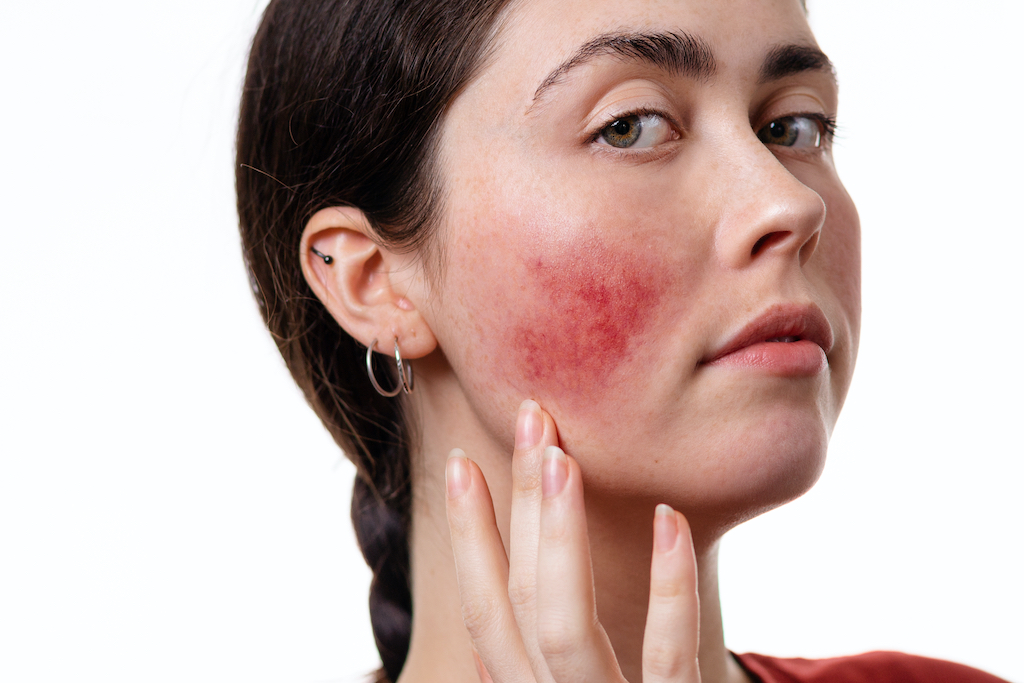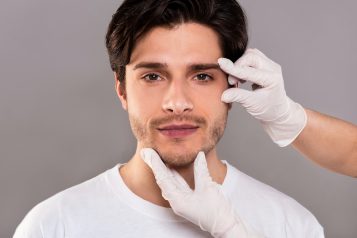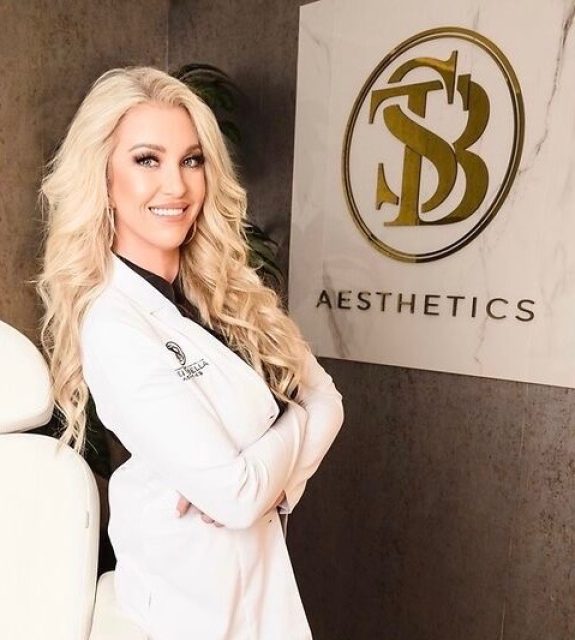Mara C. Weinstein Velez, M.D., FAAD is a board-certified dermatologist, and Director of Cosmetics and Laser Surgery at the University of Rochester Medical Center, in Upstate New York. Dr. Weinstein-Velez completed a prestigious Laser, Cosmetic and Dermatologic Surgery fellowship at SkinCare Physicians in Boston, with clinical faculty from the Harvard and Yale Departments of Dermatology and is one of the only Fellowship-trained Cosmetic and Laser Surgeons in Western NY. Haute Beauty expert Dr. Mara Weinstein-Velez explains how to address and manage your skin during a pandemic.
 Photo Credit: ShutterstockWhat is psychodermatology?
Photo Credit: ShutterstockWhat is psychodermatology?
Psychodermatology is the connection between psychological issues and skin diseases, specifically how stress can impact this connection. Psychiatry is concerned with the “invisible” disease, and dermatology is concerned with the “visible” external disease. The skin and central nervous system are very intertwined, and psychodermatology addresses the interaction between these two systems.
With psychodermatology, there are two main groups of patients:
• The first group of patients are the ones who are stressed, to begin with, which then causes their existing skin condition to worsen, or a new skin condition to arise. For example, stress can cause someone to break out into hives, lose hair, or have a psoriasis flare. Most patients report stress before a skin condition flare-up.
• The second group of patients are those who have a skin condition first, which then ultimately creates stress. For example, someone may suffer from acne and is having difficulty finding the right treatment, which causes stress.
There can also be a lot of overlap between these categories.
The pandemic has certainly caused many people to become more stressed, and with that may come skin troubles. Understanding the connection between our mindset and our skin health can help us manage skin conditions caused by stress or other psychological issues.
How important is the mind-skin connection? Is stress the biggest factor?
The mind-skin connection is very important. The problem can work both ways - our mind can cause skin conditions - and skin conditions can cause psychological conditions. The brain and nervous system influence the skin's immune cells. Therefore, our bodies can tell us when something is off mentally, such as being stressed.
Stress is the biggest factor in the mind-body connection, as it causes many things to become off-balance in our bodies. Increased stress can cause our skin to produce more skin sebum, which clogs pores and causes acne. Stress can also increase inflammation in the body and increase hormone levels like cortisol which can worsen some skin conditions and contribute to dull, tired appearing skin.
What are the primary skin conditions associated with psychodermatology, and how come?
There is a myriad of skin conditions that are associated with the mind-skin connection - many of them are linked to common psychological conditions like anxiety and depression (picking disorders like trichotillomania, skin picking (acne excoriate, prurigo nodularis, neurodermatitis, hyperhidrosis, and body dysphoric disorder, among others).
In addition, stress can play a huge role in causing other dermatological conditions that we are seeing a lot of lately, due to the effect of cortisol on the skin. Stress increases cortisol hormone levels, which can lead to increased oil production, worsening conditions like acne and rosacea - in addition to triggering our skin inflammatory response - leading to flares of skin rashes like psoriasis and eczema. Increased stress can also trigger a condition called telogen effluvium, the term we use for increased shedding, or a specific type of hair loss.
 Photo Credit: ShutterstockHow do you treat these patients? Do you believe in using hypnosis and other forms of holistic therapy? Or is predominantly medication-based?
Photo Credit: ShutterstockHow do you treat these patients? Do you believe in using hypnosis and other forms of holistic therapy? Or is predominantly medication-based?
Many of the conditions linked to anxiety and depression (as listed above) require collaborative efforts to treat, including consulting with the patients’ therapists, referring them formally to psychiatry, or seeing these patients in a multidisciplinary (psychiatry and dermatology) clinic, if available. Oftentimes, combined treatments with anxiolytics, antipsychotics, or anti-depressants are required, along with cognitive behavioral therapy and medication (topical, oral, or light therapy) interventions provided by dermatology.
My personal approach is more of a holistic one - oral medications tend to be the last resort. Many of these patients need to first establish trust with their physician, feel confident that their concerns are being heard, and then receive a treatment plan in which they are active participants.
For stress-related conditions (listed above), stress reduction is key to start the process of healing and the path to achieving clearer, more nourished, hydrated, and fresher-looking skin. I do emphasize the importance of sleep in order for the mind to reset. Sleep can give clarity to situations in which a tired, stressed-out mind may fold, while a rested, refreshed mind can conquer. Mindset is everything – and getting enough rest keeps you grounded.
If the pandemic is taking a toll on your mental health, try to manage stress in healthy ways including:
- Take care of your body, including healthy eating, regular exercise, hydration, and meditation, and/or yoga.
- Take breaks from social media.
- Make time to unwind – relax, engage in hobbies.
- Connect with others – talk with people you trust about how you’re feeling.
Anything else you'd like to add?
If the pandemic has increased your stress levels and affected your skin – you’re not alone. Your healthcare providers are here for you – to help you manage all aspects of your health, from your skin to your mind.
It's so important to seek help from a board-certified dermatologist if a skin condition is causing you stress, or if you are noticing new skin, hair, or nail issues. We can give you information that is accurate and tailored to your unique needs. Additionally, if stress during the pandemic is becoming unmanageable, seek help from a mental health professional.
For more information, visit Dr. Mara Weinstein Velez's social media:






















